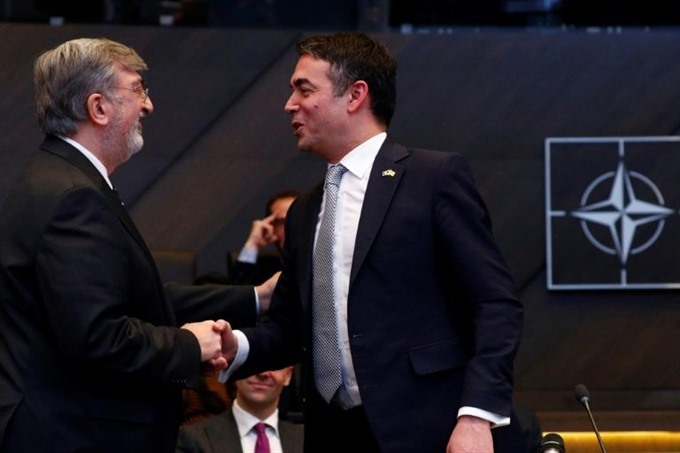 World
World

Greek lawmakers on Friday approved Macedonia's NATO accession bid, putting the final touches on a historic deal to end a 27-year name row between the two countries.
 |
| Greek NATO representative Spiros Lambridis (left) shakes hands with Macedonian Foreign Minister Nikola Dimitrov after the signature ceremony of the accession protocol between the Republic of North Macedonia and NATO on February 6, 2019. — AFP Photo |
ATHENS — Greek lawmakers on Friday approved Macedonia’s NATO accession bid, putting the final touches on a historic deal to end a 27-year name row between the two countries.
A majority of 153 lawmakers supported the legislation, while 140 voted against.
"Today’s vote closes the most important round of obligations involving Greece," Prime Minister Alexis Tsipras told parliament ahead of the vote.
"I’d like to welcome North Macedonia, a country friendly to Greece, a country that must be an ally in efforts to establish security, stability and peace in the region.
"History will judge us. I feel we have carried out our patriotic duty," Tsipras said.
The ratification was part of a deal signed in June to change Macedonia’s name to the Republic of North Macedonia, and lift Greek objections to its EU and NATO membership bids.
Tsipras on Friday said the deal had "upgraded" Greece’s international standing.
Skopje must adopt the new name "in the public discourse, in addition to all street signs and official documents," he added.
Since 1991, Athens has objected to its neighbour being called Macedonia because Greece has a northern province of the same name. In ancient times it was the cradle of Alexander the Great’s empire, a source of intense pride for Greeks.
On Wednesday, Skopje signed NATO accession papers in Brussels that will lead to Macedonia becoming the alliance’s 30th member once the bid has been ratified by all members.
NATO Secretary General Jens Stoltenberg has said Macedonia may now take part in NATO ministerial meetings as an invitee, starting with a gathering of defence ministers in Brussels next week.
For Skopje to achieve full membership, NATO’s 29 current members must ratify the accession protocol. When Montenegro joined in 2017 that process took about a year.
NATO and the EU believe Macedonia’s membership will enhance stability in the Balkans, while the alliance’s expansion into the region has been opposed by Russia. — AFP




